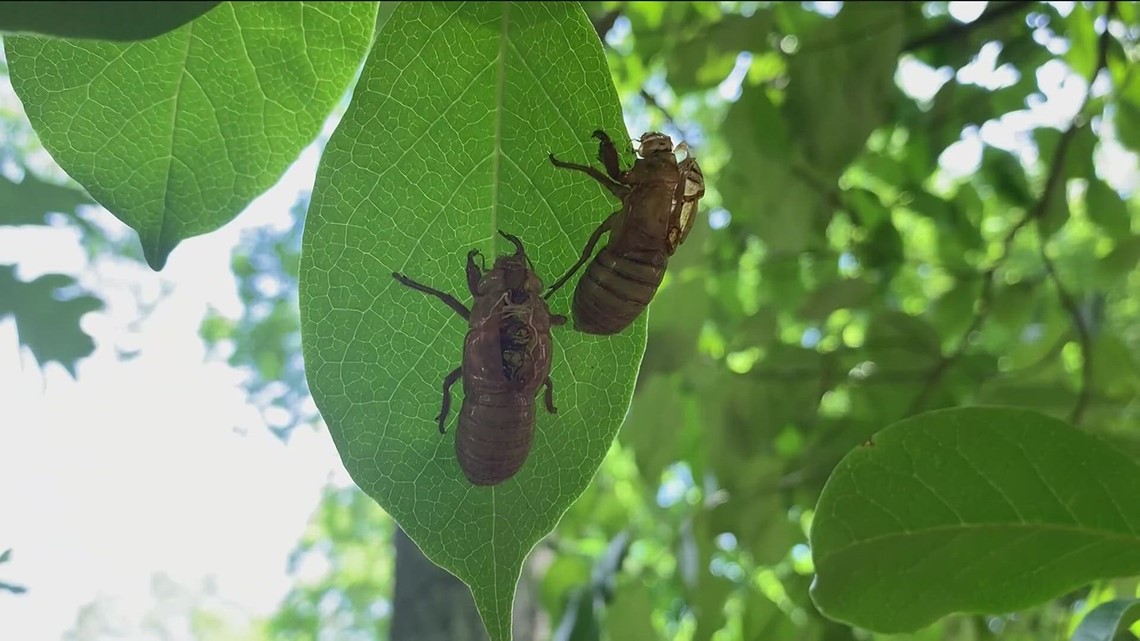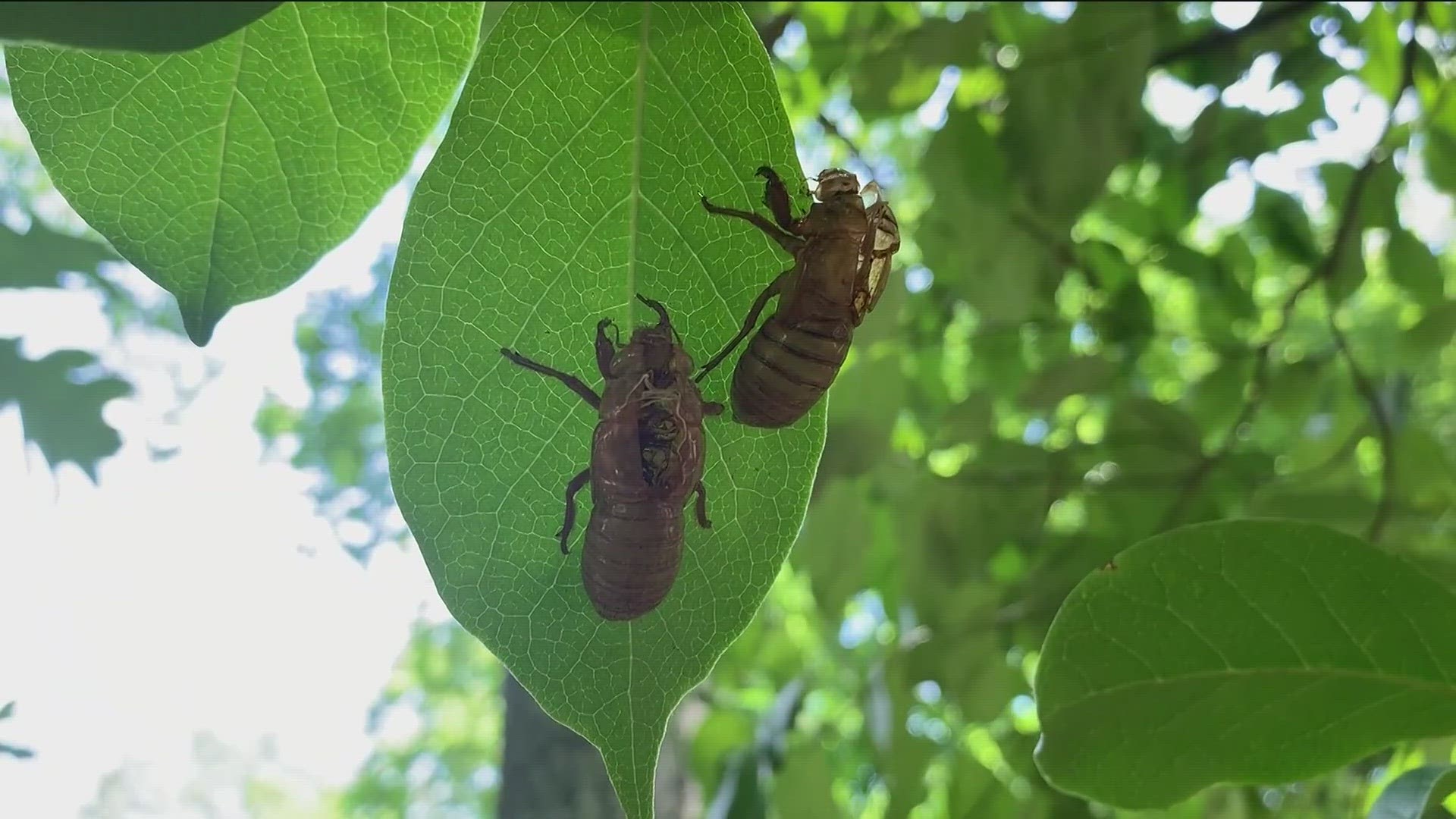ATHENS, Ga. — In just a few weeks, communities across Georgia may start to buzz with the return of periodical cicadas -- marking their first appearance in 13 years.
Experts from the University of Georgia anticipate the emergence of these noisy critters, advising residents living nearby to prepare for the familiar hum soon to fill the air.
For Dr. Nancy Hinkle, cicadas are more than just a professional interest —they're a passion.
"Cicadas are just a hobby. Shh, don't tell my boss," she quipped.
Hinkle, an expert on the subject, explained the unique allure of these creatures and said this is the only 13-year cicada that we have in the south.
This year, Hinkle predicts the return of the golden-winged and red-eyed insects, emphasizing their synchronized emergence.
"They all emerge at one time so that they can fill up the bellies of everything that eats them," she elaborated. "Then there's still some cicadas left living; those can reproduce."


RELATED: Invaders from underground are coming in cicada-geddon. It's the biggest bug emergence in centuries
According to Hinkle, the cicadas will emerge from the earth during the month of May. While males die after mating, females perish after laying eggs. However, residents of metro Atlanta could potentially not witness this phenomenon.
"There are no trees old enough in metro Atlanta for them to still be there over the decade," Hinkle explained.
In 2011, Hinkle and other researchers tracked cicada sightings in mostly rural parts of Georgia. The closest they came to metro Atlanta was directly east and south of the metro in areas like Peachtree City. Now, their offspring is expected to emerge.
Despite their impending arrival, Hinkle reassured the public that cicadas pose no threat to humans or pets.
"They are completely harmless. They cannot bite. They cannot sting. They are not poisonous. They're not going to harm you in any way," she emphasized.

